THE WARS OF YESTERDAY
THE WARS OF YESTERDAY
THE BALKAN WARS AND THE EMERGENCE OF MODERN MILITARY CONFLICT, 191213
Edited by Katrin Boeckh and Sabine Rutar

First published in 2018 by
Berghahn Books
www.berghahnbooks.com
2018 Katrin Boeckh and Sabine Rutar
All rights reserved. Except for the quotation of short passages
for the purposes of criticism and review, no part of this book
may be reproduced in any form or by any means, electronic or
mechanical, including photocopying, recording, or any information
storage and retrieval system now known or to be invented,
without written permission of the publisher.
Library of Congress Cataloging-in-Publication Data
A C.I.P. cataloging record is available from the Library of Congress
British Library Cataloguing in Publication Data
A catalogue record for this book is available from the British Library
ISBN 978-1-78533-774-1 hardback
ISBN 978-1-78533-775-8 ebook

Contents
Katrin Boeckh and Sabine Rutar
Wolfgang Hpken
Gl Tokay
Alma Hannig
Michael Hesselholt Clemmesen
Mehmet Beiki
Richard C. Hall
Spyridon Tsoutsoumpis
Claudiu-Lucian Topor
Alexey Timofeev
Sabine Rutar
Vera Goseva and Natasha Kotlar-Trajkova
Iakovos D. Michailidis
Eyal Ginio
Oya Dalar Macar
Heike Karge
Katrin Boeckh and Sabine Rutar

Tables

Acknowledgements
Without the help of many good spirits, this volume would not have seen the light of day. We would like to acknowledge the assistance of the colleagues and institutions that actively supported the publication of this book, and to express our sincere gratitude. Dr Wolfgang Levermann of the Volkswagen Foundation has been sympathetic to the project from our initial proposal to the completion of the present volume, the Foundation supporting us by generous funding. Prof. Dr Mehmet Hacsaliholu of the Center for Balkan and Black Sea Studies at Yldz Technical University and his student assistants provided a congenial infrastructure and a perfect setting for fruitful discussions in beautiful Istanbul.
Aiveen Donnelly, Jim Gibbons, Christian Mady, Alexander Legler, Kathleen Luft, Zoe Roth and Joanna Wiesler assisted us in the preparation of the manuscript. We are grateful to the Leibniz Institute for East and Southeast European Studies (IOS) in Regensburg, which generously funded the volumes editing process. A final thank you is due to Chris Chappell, Amanda Horn and Charlotte Mosedale, as well as Berghahns production team, who assiduously supported and assisted us from the publishers side.

Part I
Introductions

The Wars of Yesterday
THE BALKAN WARS AND THE EMERGENCE OF MODERN MILITARY CONFLICT, 1912/13
An Introduction
Katrin Boeckh and Sabine Rutar
The Balkan Wars of 1912/13 and their outcomes have shaped much of the military and political thinking of the Balkan elites during the last century. At the same time, these wars were intimations of what was to become the bloodiest, most violent century in Europes and indeed humankinds history. Wars often lead to other wars. Yet this process of contagion happened in a particularly gruesome manner during the twentieth century. In Europe, the Balkan Wars marked the beginning of the twentieth centurys history of warfare.
In the First Balkan War (October 1912May 1913), Serbia, Montenegro, Greece and Bulgaria declared war on the Ottoman Empire; in the Second Balkan War (JuneAugust 1913), Bulgaria fought Serbia, Montenegro and Greece over the Ottoman territories they had each just gained. From July onwards, Serbia, Montenegro and Greece were supported by Romania, who entered the war hoping to seize the southern Dobruja from Bulgaria. These hopes were realized. Albania, declared an independent state in November 1912, was thus a product of the First Balkan War. The borders of other territories were changed and obtained features that partially remain valid up to the present: the historical region of Macedonia, a main theatre of the wars, was divided among Greece (Aegean Macedonia), Bulgaria (Pirin Macedonia) and Serbia (Vardar Macedonia, corresponding largely to todays Republic of Macedonia, established in 1991). The Ottoman Empires loss of most of its European territories in the conflict was one more warning sign of its inner weakness; it ceased to exist in the aftermath of the First World War, and was succeeded by the Republic of Turkey in 1923.
As this enumeration of territorial and political changes makes plain, the states existing today in the area can hardly offer a satisfactory framework for exploring the history of the two Balkan Wars, which in many ways exerted a more profound impact on the region than even the Great War. And yet, in Southeastern Europe, scholars addressing and researching these first European wars of the twentieth century have long adopted a traditional military and/or political history perspective, firmly rooted in the respective national master narratives of the former belligerents. Among the tasks of our volume is to challenge these master narratives.
The second war was not succeeded by much of a postwar period, for only slightly more than a year after the fighting ended, the First World War broke out. Once more, the Balkan countries engaged in war to pursue territorial claims that had remained unsatisfied. Territorial aspirations continued to be at stake in both the Second World War and, in yet another manner, the Yugoslav wars of the 1990s. As a result, the local populations in the region faced unstable living conditions, in both a social and a political sense, throughout nearly the full span of the twentieth century, interspersed with only a few decades that lacked violent conflict. All the wars caused destruction, displacement and death. State borders remained contested, and all too often the regions political regimes ignored the rights of ethnic minorities.
These conflicts happened in the shadow of global events. Western scholars in particular have tended to interpret the two Balkan Wars of 1912/13 as a mere prelude to the Great War, a marginal event in the context of great power politics, hardly worth mentioning. Labelled regional wars, they quickly faded into the background as the echo of the shots fired in Sarajevo on 28 June 1914 rippled across the globe. On the other hand, scholars in Southeastern Europe have built upon their respective national master narratives, in which the Balkan Wars are firmly rooted.
Thus, the Balkan Wars, the conflicts that intimated so many features of future wars, have yet to find their appropriate interpretative
To achieve an open scholarly dialogue on the issues connected to the Balkan Wars of 1912/13, several of which remain quite sensitive, collaboration among historians from Southeastern Europe and Turkey as well as other countries needs to intensify. Such dialogue can transcend the boundaries of nation-state-centred historiographies and can place the wars in a genuinely European and global perspective. To foster such dialogue is one central aim of this volume. Its roots lie in the lively discussions at Yldz Technical University stanbul during the October 2012 centennial of the outbreak of war, generously supported by the Volkswagen Foundation (
Next page

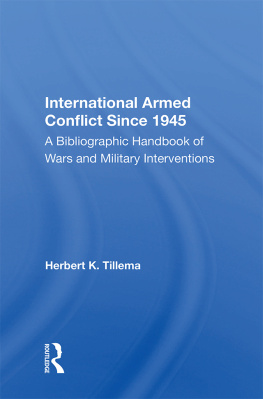
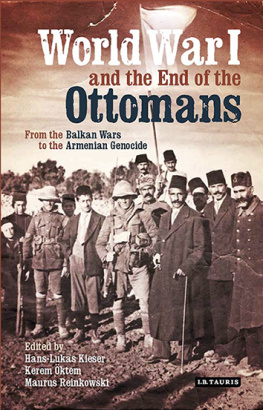
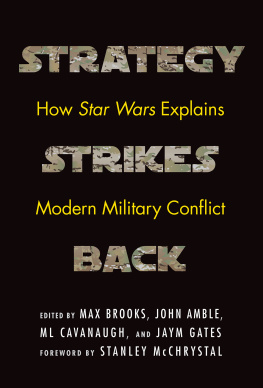
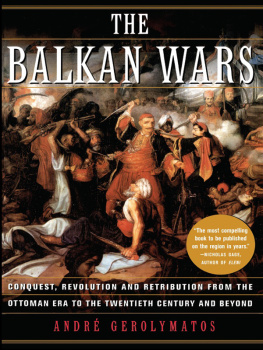
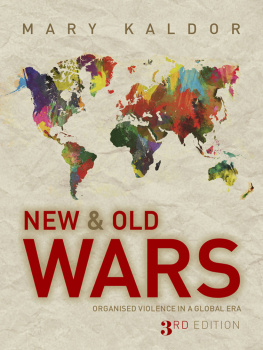
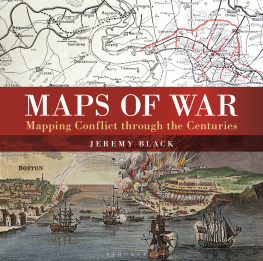
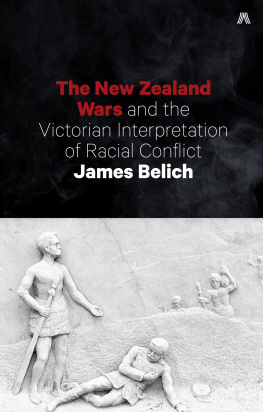

 Contents
Contents